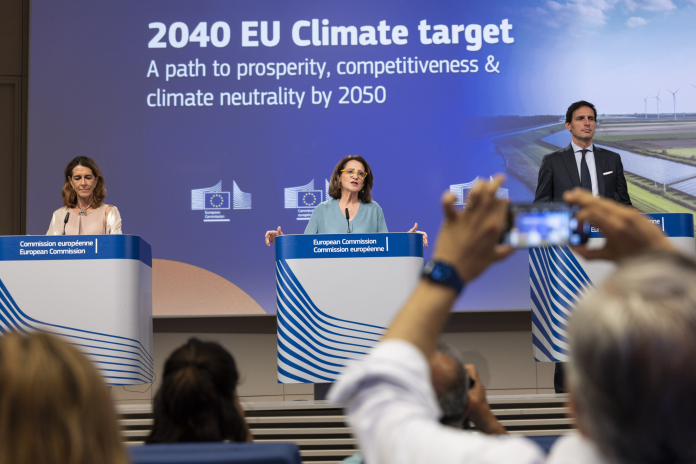Czech Prime Minister Petr Fiala spearheaded a forceful rejection of the European Commission’s proposed 90% emissions reduction target for 2040, Euractiv reported.
We do not agree with setting another climate target.
Speaking at a Wednesday press conference, Fiala emphasised that existing commitments should be fulfilled “in a reasonable way” without undermining economic stability. He also framed the EU’s approach as a threat to industrial competitiveness and social equity.
Environment Minister Petr Hladík and MEP Tomáš Zdechovský, both from the Christian Democratic KDU-ČSL, echoed this stance. Hladík dismissed the proposal as unrealistic for Czechia, demanding clearer impact assessments and enhanced EU funding:
This proposal is not realistic for the Czech Republic. Without realistic conditions and fair financing, the transformation is not feasible.
Zdechovský escalated criticisms, warning the Commission risked dismissal during the upcoming Strasbourg plenary session:
The whole European Commission has gone mad. The majority of MEPs across political factions are angry. It was not discussed with us beforehand.
The objections reflect Czechia’s longstanding insistence that climate targets must accommodate national energy strategies, particularly its reliance on nuclear power. As Hladík stressed, any viable pathway requires EU approval of state aid for nuclear expansion, a condition previously highlighted during 2030 target negotiations.
Czech MEP Alexandr Vondra intensified the rhetoric, condemning the 2040 target as “an example of disgusting ‘climate colonialism’.” He argued the costs would devastate ordinary citizens.
His critique resonates with Eastern European concerns about unequal transition burdens, first voiced in 2020 when the region warned of the “social, environmental and economic costs” of rapid decarbonisation.
The unified opposition signals a potential fracture in the European Conservatives and Reformists (ECR) and European People’s Party (EPP) support for Commission President Ursula von der Leyen. Zdechovský’s threat that MEPs might “raise our hand and be very angry with some of the commissioners” underscores the fragility of her coalition
